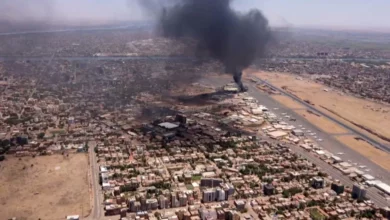
The regional spokesman for the US State Department Samuel Warburg said on Sunday that the United States believes that diplomacy is the only solution to the issue of the Grand Ethiopian Renaissance Dam (GERD).
During an interview with TV host Amr Abdel-Hamid on TeN satellite channel, Warburg pointed out that the UN Security Council’s session showed that this issue is very important for the African continent.
He added that the international community is fully aware of the importance of the GERD issue for the Nile Basin region.
Warburg explained that there is no alternative or military solution, and “we cannot imagine any new war in the African continent.”
He pointed out that the downstream countries and the African Union must resume negotiations, stating that the US is ready to provide any political or technical assistance.
Warburg said that the US calls on all parties to refrain from any statements in order to resume dialogue, and that any future dialogue must be aimed at moving negotiations along. The US does not want more time spent on the negotiations, he said.
The UN Security Council held a meeting over the GERD issue on Thursday after a call from the Arab League. Egyptian Foreign Minister Sameh Shoukry praised the move on Saturday, expressing satisfaction with the session.
Ethiopia informed Egypt on July 5 that it has begun the process of filling the second filling of the GERD reservoir. Egypt expressed its flat refusal of this unilateral measure, calling it a clear and dangerous breach of the Declaration of Principles Agreement.
Egypt and Sudan say they want a legally binding agreement on filling and operating the GERD, while Ethiopia is trying to evade such an agreement.
The construction of the dam, which began in 2011, is considered to be one of Egypt’s most serious water issues.
Egypt, which relies considerably on freshwater from the Nile, has voiced fears that the GERD would negatively impact the country’s water supply, and has insisted that measures be put in place to protect downstream countries in case of drought during the dam’s filling process.
Ethiopia, on the other hand, has stressed the importance of the project to bolster its economy, where more than half of the population currently lives without access to electricity.




